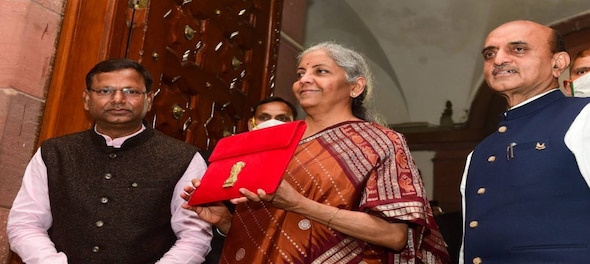
Finance Minister Nirmala Sitharaman on Tuesday announced that virtual assets will now be taxed at 30 percent on all income made on them. Virtual digital assets, as they are called in the Budget speech, will most likely cover assets like non-fungible tokens (NFTs) and cryptocurrencies.
While provisions of the new tax code will now bring income from the sale of crypto assets under the lens of the Income Tax department, there was no mention of what the government plans to do with cryptocurrencies in the future, apart from the fact that it will not consider cryptocurrency as ‘currency’.
"I said the Reserve Bank (of India) will be issuing a digital currency. A currency becomes, or, a currency is a currency only when it is issued by the central bank, even if it is crypto. Anything outside of that, even loosely all of it referred to as cryptocurrencies, they are not currencies," Sitharaman said in the post-presentation media briefing.
Despite this, there is still no regulation on cryptocurrencies. The Cryptocurrency Bill, which was proposing to ban all private virtual currencies, was not tabled in the Winter Session in December and has not been listed for this Budget session of the Parliament either. Crypto ‘assets’ continue to exist in limbo.
"I don't wait till regulations come in place for taxing people who are making profits. Can I?" Sitharaman responded to questions about the lack of regulations regarding crypto.
While the Reserve Bank of India had banned cryptocurrencies in 2018, the Supreme Court in 2020 lifted the ban due to its disproportionate nature and the lack of clear direction from the government despite several early draft bills cautioning against blanket bans of cryptocurrencies.
Since the lifting of the ban, India has become one of the major hubs of cryptocurrencies, with the country ranking second on the Global Crypto Adoption Index. India is now home to several large cryptocurrency exchanges and 15 million Indians have invested in cryptocurrencies, according to data compiled by CREBACO, a research firm.
But now the new tax provisions may well serve to be a deterrent to potential new investors in the burgeoning space. A 30 percent tax on income is significantly higher than what tax payers would be paying on both long-term and short-term capital gains income from assets like equities, mutual funds and even commodities.
One BTC bought exactly a year ago would have cost Rs 2,589,456. Selling the same Bitcoin today will net a profit of Rs 289,923, despite the fact that Bitcoin is already down 19.05 percent since the start of 2022. Investors would now need to pay Rs 86,976 as tax on that income.
However, even after paying trading fee, exchange fee and withdrawal fee, crypto owners still make hefty profits. For tokens that have seen prices soar thousands of times, the margin for profit remains extremely high.
Except that many investors are only investing a fraction of this amount and for their much smaller and marginal profits, a 30 percent tax is significantly high.
What perhaps may be a silent killer is the 1 percent TDS charge on every cryptocurrency transaction. For cryptocurrency day traders, who often make tens if not hundreds of transactions each day, the costs can quickly rack up.
The inability to claim any deductions or set off any losses against any income in the cryptocurrency world, where sell-offs are just as common as rallies, means that actualised profits for crypto investors may take a significant hit.
(Edited by : Thomas Abraham)
Check out our in-depth Market Coverage, Business News & get real-time Stock Market Updates on CNBC-TV18. Also, Watch our channels CNBC-TV18, CNBC Awaaz and CNBC Bajar Live on-the-go!


PM Modi visits Ram Mandir for first time since 'Pran Pratishtha', offers prayers before roadshow
May 5, 2024 8:59 PM
Visiting temples, obliging selfie requests, jabbing rivals – Kangana Ranaut is wooing voters on campaign trail
May 5, 2024 8:23 PM

